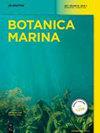A review of polyunsaturated fatty acids (PUFA) of marine zoosporic microorganisms and their commercialization
IF 1.4
4区 生物学
Q2 MARINE & FRESHWATER BIOLOGY
引用次数: 0
Abstract
Abstract Long-chain polyunsaturated fatty acids (LC-PUFA) are nutritionally and pharmacologically well-recognized beneficial compounds widely used as nutrient supplements for various applications. As the human body cannot accomplish de novo synthesis of PUFA, we depend on exogenous bioresources for the supply of these essential PUFA for day-to-day activities. The PUFA global market is expected to reach about US$ 9.7 billion by 2032. The recent drop in natural fish catch and global climate change severely hamper the global PUFA supply chain. As a sustainable, promising resource, marine zoosporic microorganisms are considered to be safe and alternative primary producers of beneficial PUFAs for direct and indirect human consumption. However, by considering the limitations associated with strain efficiency, final product yield and production cost, more viable low-cost production strategies and establishment of highly efficient, stable, high production cell lines specific for marine zoosporic microbes are essential to meet global PUFA market demand. The exploration of the latest techniques for research and development could shape the dynamics better for the global market for marine zoosporic organism-based PUFA products. Therefore, this review first summarizes low-cost production and strain improvement strategies, and later highlights the advantages and commercial prospects for marine zoosporic microbe-derived PUFA.海洋动物孢子菌多不饱和脂肪酸及其商业化研究进展
摘要长链多不饱和脂肪酸(LC-PUFA)是一种在营养和药理学上公认的有益化合物,被广泛用作各种营养补充剂。由于人体不能完成PUFA的从头合成,我们依靠外源性生物资源来供应这些日常活动所需的必需PUFA。到2032年,PUFA全球市场预计将达到约97亿美元。最近自然捕鱼量的下降和全球气候变化严重阻碍了全球PUFA供应链。作为一种可持续的、有发展前景的资源,海洋动物孢子菌被认为是人类直接或间接消费的有益pufa的安全的替代初级生产者。然而,考虑到菌株效率、最终产品产量和生产成本的限制,更可行的低成本生产策略和建立高效、稳定、高产的海洋动物孢子菌专用细胞系是满足全球PUFA市场需求的必要条件。探索最新的研究和开发技术可以更好地塑造基于海洋动物孢子生物的PUFA产品的全球市场动态。因此,本文首先综述了海洋动物孢子菌源PUFA的低成本生产和菌株改良策略,然后重点介绍了海洋动物孢子菌源PUFA的优势和商业前景。
本文章由计算机程序翻译,如有差异,请以英文原文为准。
求助全文
约1分钟内获得全文
求助全文
来源期刊

Botanica Marina
生物-海洋与淡水生物学
CiteScore
4.10
自引率
4.50%
发文量
43
期刊介绍:
Botanica Marina publishes high-quality contributions from all of the disciplines of marine botany at all levels of biological organisation from subcellular to ecosystem: chemistry and applications, genomics, physiology and ecology, phylogeny and biogeography. Research involving global or interdisciplinary interest is especially welcome. Applied science papers are appreciated, particularly when they illustrate the application of emerging conceptual issues or promote developing technologies. The journal invites state-of-the art reviews dealing with recent developments in marine botany.
 求助内容:
求助内容: 应助结果提醒方式:
应助结果提醒方式:


